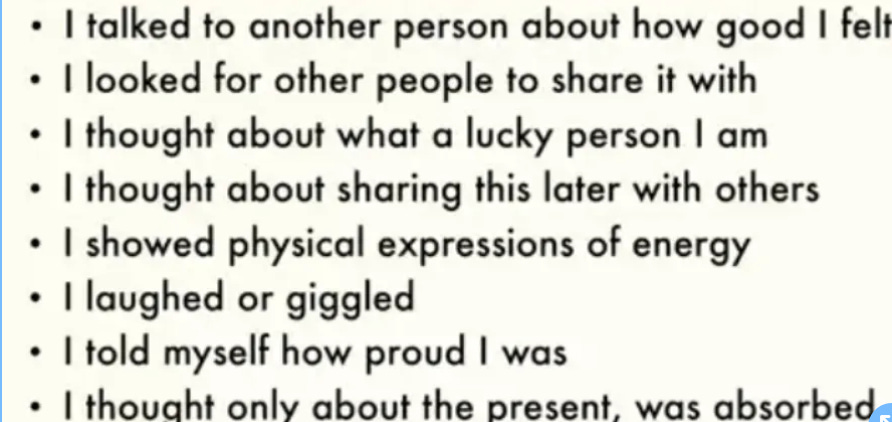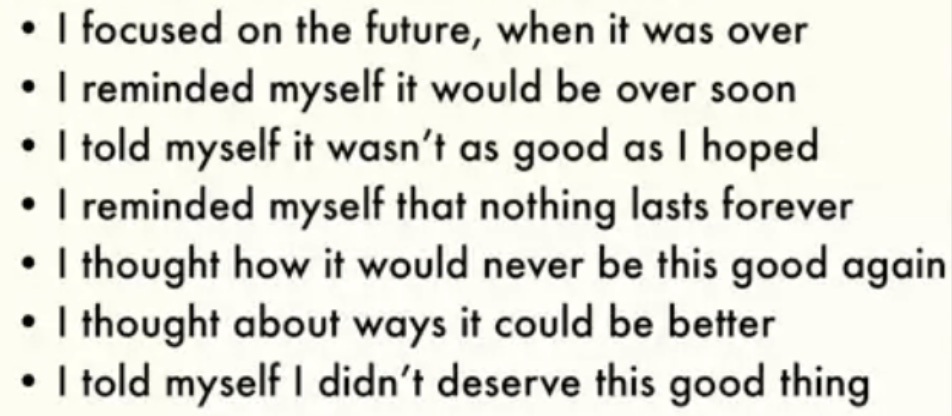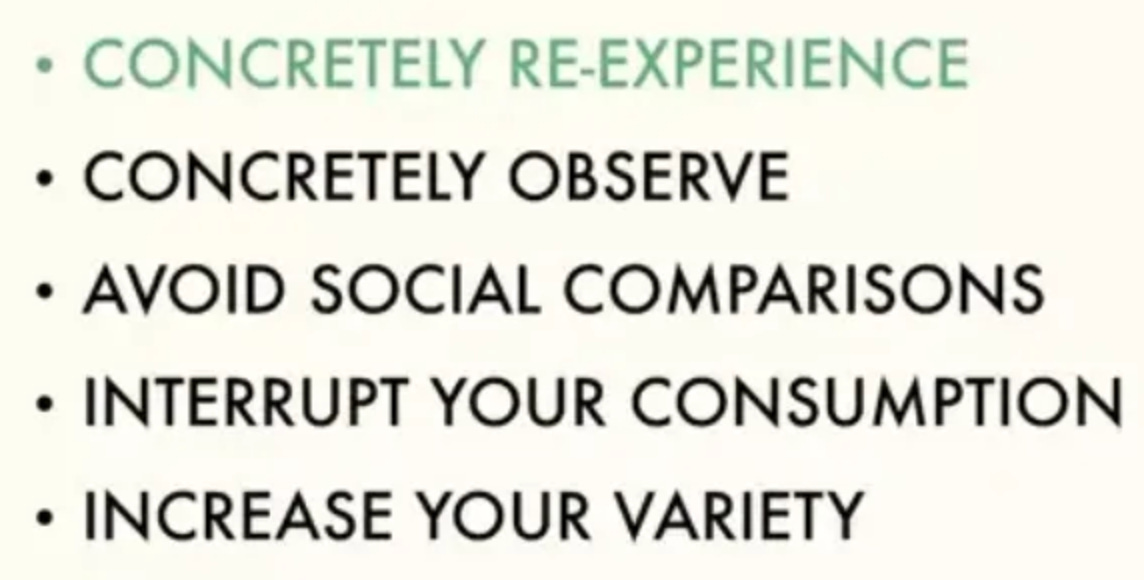How to Thwart Hedonic Adaptation
Science-backed advice on happiness
Last week we learned that our mind has four annoying features that have us expecting happiness in all the wrong places.
What we predict will make us happy or unhappy is almost always wrong.
Today, I will share science-backed approaches that have been shown to increase our levels of well-being, but first
What affects our happiness baseline?
Remember the concept of hedonic adaptation? No matter what you get, you return to a baseline level of happiness after a temporary high.
What affects that baseline? Is it genes, circumstances or a mix of both?
Sonja Lyubomirsky set out to answer this question.
Her research compared identical twins’ happiness levels with fraternal twins’ happiness measures. The former presumably share the same genes and the latter similar life circumstances.
She also looked at studies of the happiness levels of people who had really terrible things happen such as becoming paraplegic, losing all their money, becoming a widow etc.
She came up with a pie chart that describes the contribution of both genes and life circumstances towards happiness.
It seems like we have a genetic set point for happiness. But what I found interesting (because that’s not the mind’s intuition) is that life’s circumstances only account for 10% of our happiness.
The good news is that the rest is up to us. The ability to have 40% control over the outcome is really high.
Then the question arises:
What are the thoughts and actions that contribute to our happiness?
1. Don’t invest in stuff, invest in experiences.
Gettings things like a new house, a car or clothing annoys us because they stick around.
In other words, things we constantly come in contact with get us back on the hedonic treadmill. Dreaming of Ferrari was really cool but now that Ferrari is your baseline, it’s not as fun any more.
Experiences, on the other hand, last a relatively short period of time, so they give us a sense of pleasure, happiness and enjoyment. We don’t adapt to experiences.
Another bonus is that experiences help other people resonate with you because they’re less susceptible to social comparison.
2. Savouring
Savouring is stepping outside of experience to appreciate it and be mindful of what’s happening.
Like when you eat a delicious cake instead of washing it down your throat with tea, pause to appreciate the environment, taste, texture, flavour etc.
Strategies to enhance savouring:
Activities that hurt savouring:
3. Negative visualization
What would life be like if something wouldn’t have happened?
What if…
You were born in a different country?
Never met your partner?
Didn’t end up going to the school you did?
One of your parents would have died when you were young.
Etc.
Another similar exercise is imagining you have very little time left.
Not in terms of you’re going to die tomorrow but picturing that you are about to graduate, leave your current job, see your best friend or spend time with your parent.
Sometimes when the going gets tough or we’ve adapted to our current circumstances it helps to reflect on how we would feel if we knew we didn’t have much time left to do this.
No matter how long something lasts, one of these days everything you do will be for the last time. Oftentimes we don’t even know it’s the last time until it comes.
4. Reset your reference points
Remember that our mind doesn’t compare our lives on its own but in reference to the lives of others?
Here’s a set of strategies to stop that from happening.
Strategy 1
Re-experience how you felt when you got that amazing thing (spouse, job, got into Yale, increase in salary etc).
For example, remember what it was like with a smaller salary and appreciate having a bigger salary now.
Strategy 2
Think of how you could be in a much worse position or situation.
Strategy 3
Avoid social comparison - dramatically reduce the usage of social media. Dr Santos advises deleting it altogether because our minds are too weak to resist the bait of tech companies.
If you choose to keep social media:
Be mindful of your state while scrolling. Use a STOP technique - when you catch yourself evaluating against other people, say STOP out loud and close the app.
Reflect on what sort of reference points you’re letting in. Curate your feed to get exposed to real things.
Reduce social media use significantly.
Strategy 4
Interrupt the experiences that feel really good.
The first bite of cake feels amazing. And so does watching a good TV show. It feels like you want more and it will be equally satisfying as it was at the beginning.
Well, that’s counterintuitive. The first bite of the cake tastes much better than having eaten the entire cake, doesn’t it?
Continuing with something that feels good reduces our happiness.
To counteract this you need to split the experience into pieces (like watching 2 episodes instead of binge-watching all 10) because it helps you stop the hedonic adaptation.
In part 3, I shared even more science-backed and time-tested physical, psychological, social and emotional strategies to increase happiness.
Speak soon,
Rima ♥️
P.S. If you enjoyed it, why not share it with someone who would too?






